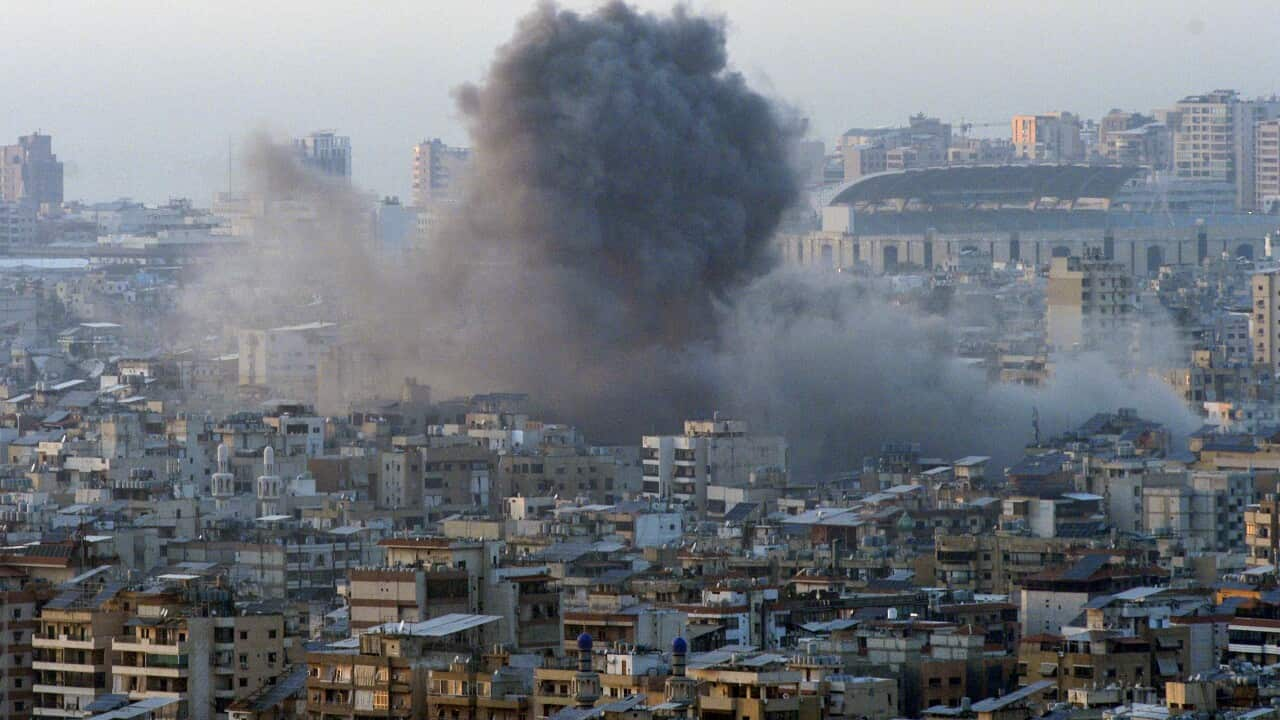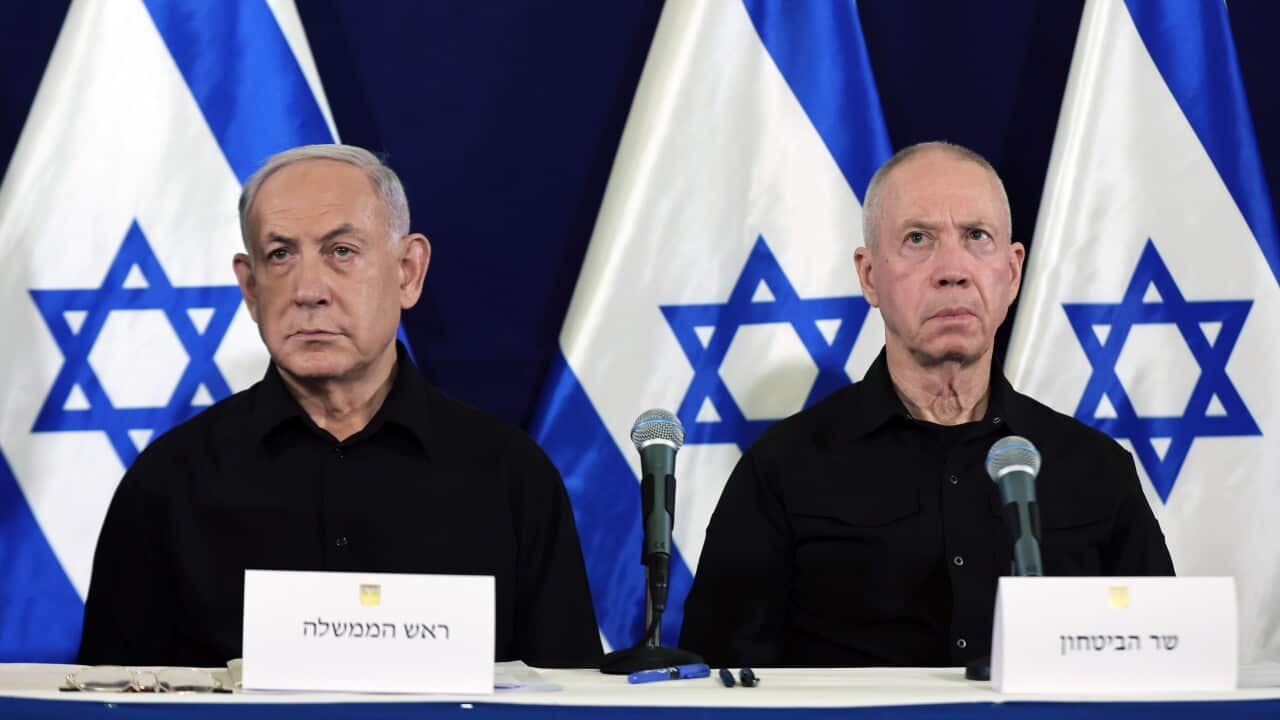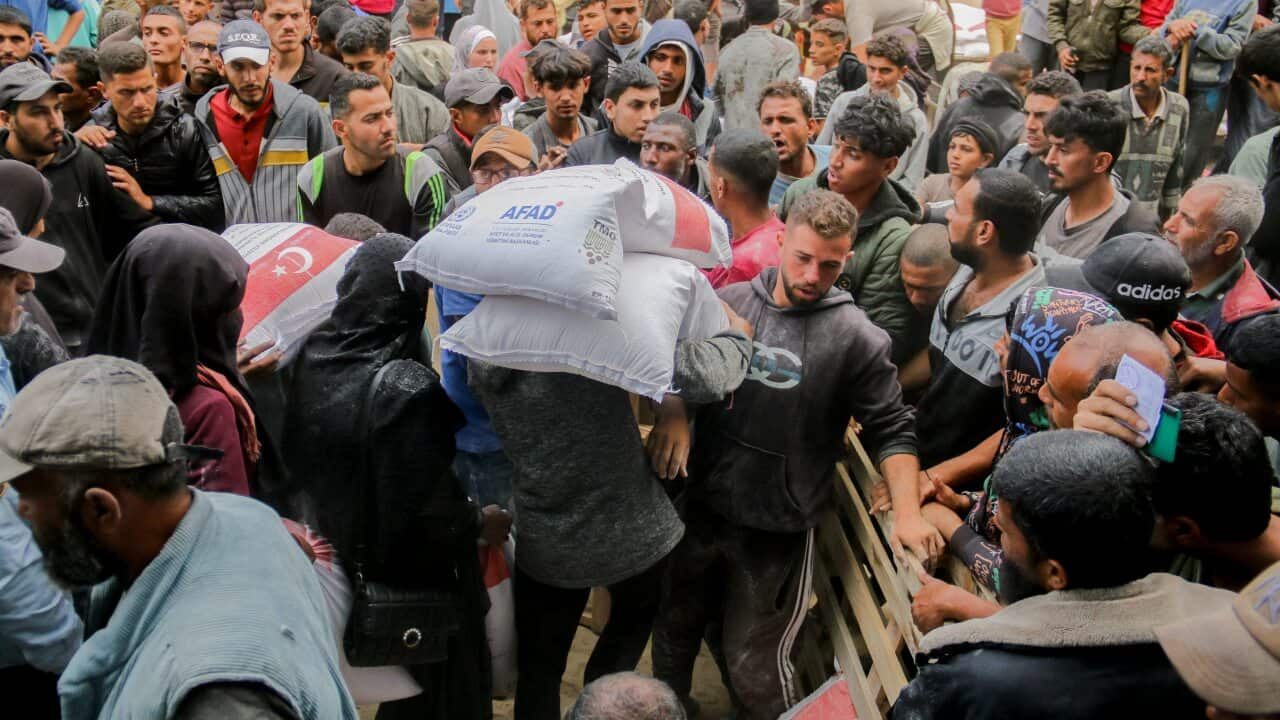Israeli strikes on Lebanon have killed 38 people around the eastern city of Baalbek in the Bekaa Valley, according to the regional governor, and at dusk more strikes hit Beirut's southern suburbs.
Israel and Hezbollah have exchanged fire for over a year in parallel with the Gaza war but fighting has dramatically escalated since late September, with Israeli troops intensifying bombing on swathes of Lebanon's south and east and making ground incursions into border villages.
About 40 Israeli strikes on the Baalbek-Hermel governorate killed 38 people and wounded 54, governor Bachir Khodr said on X.
Israeli strikes have also battered Hezbollah strongholds in the southern suburbs of the capital Beirut.
At least four strikes targeted the area on Wednesday after the Israeli military ordered residents to leave several locations.
There was no immediate report on casualties or details on what was hit.
The attack happened shortly after Hezbollah secretary general Naim Qassem said he did not believe that "political action" would bring about an end to hostilities.
He said there could be a road to indirect negotiations if Israel stopped its attacks.
"When the enemy decides to stop the aggression, there is a path for negotiations that we have clearly defined — indirect negotiations through the Lebanese state and Speaker (of parliament Nabih) Berri," Qassem said.
'Not our responsibility' to replace UNRWA aid operations
Meanwhile, the United Nations responded to Israel's decision to cut ties with the Palestinian relief agency (UNRWA) by saying it has no responsibility to replace the agency's operations in Gaza and the West Bank, signaling it was Israel's problem as the occupying power, according to a letter excerpt seen by Reuters.
Under a new law, Israel ended a 1967 cooperation agreement with UNRWA that covered the protection, movement and diplomatic immunity of the agency. The law will also ban UNRWA's operations in Israel from late January. UNRWA has said that its operations in Gaza and the West Bank are now at risk of collapse.
"I would note, as a general point, that it is not our responsibility to replace UNRWA, nor do we have the capacity to do so," UN Secretary-General Antonio Guterres' chef de cabinet, Courtenay Rattray, wrote to a senior Israeli foreign affairs official late on Tuesday.
The mention of responsibility is a veiled reference to Israel's obligations as an occupying power.
The UN views Gaza and the West Bank as Israeli-occupied territory. International humanitarian law requires an occupying power to agree to relief programs for people in need and to facilitate them "by all the means at its disposal" and ensure food, medical care, hygiene and public health standards.











